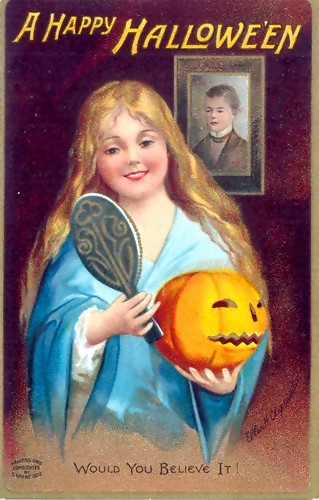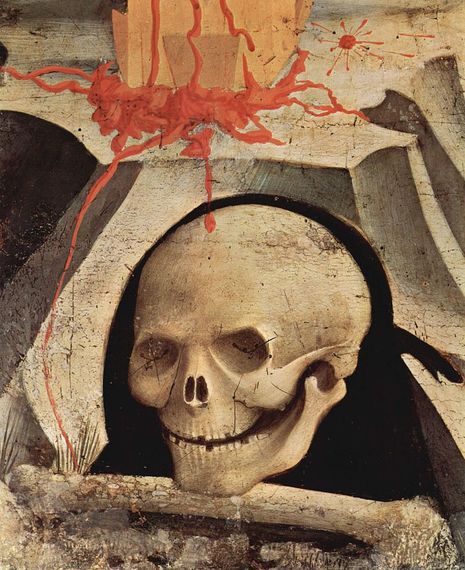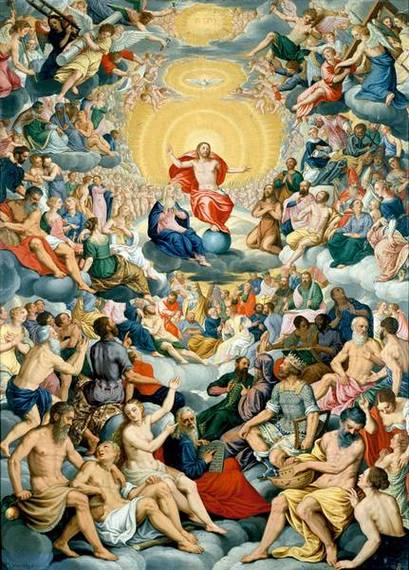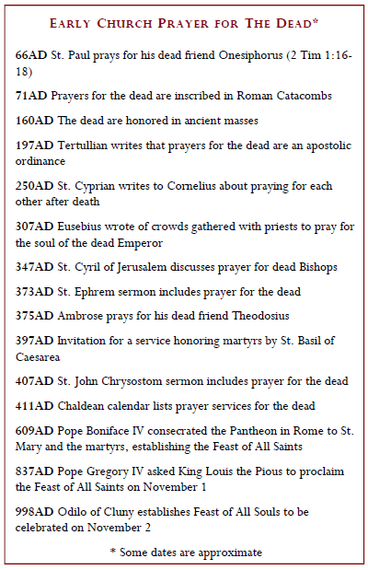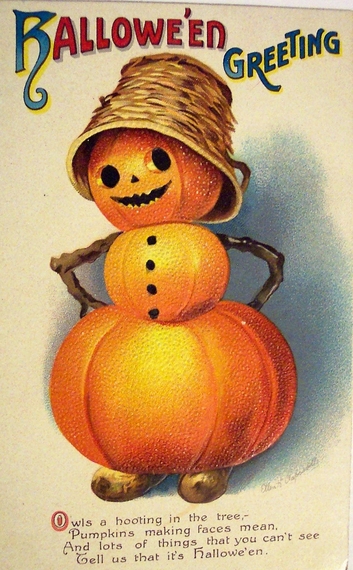Many Christians have abandoned or even oppose the celebration of Halloween, believing it to be linked with pagan darkness. Granted, our culture is drawn to zombies and scary clowns, but the holiday is profoundly Christian in its roots.
At the very heart of Halloween is an understanding of the Communion of Saints. As Christians we acknowledge the eternal nature of souls, and know that we are part of the kingdom of God, just like those who are already in heaven. After all, God's kingdom is not bound by space or time. Liturgical church services acknowledge that communion is participated along with the saints in heaven who celebrate it eternally. This historical understanding is demonstrated in both the Bible and in early Christian documents.
In the early days of the church, death was a very present and obvious part of life. Unlike today, the dying weren't out of sight in hospitals and nursing homes. Christian art in convents and monasteries often included skulls and bones, and death was an accepted topic of meditation. Prayer for the dead was commonplace, and prayer for church martyrs was a regular part of the liturgy.
The idea for the Feast of All Saints came about during the reign of Emperor Diocletion (284-305AD), who instituted the worst and most extensive of the persecutions. Prior to that time individual martyrs were honored on their own day, typically in a location associated with the person being remembered, using whatever relics were available. But because of the persecution, the sheer numbers of those to be honored grew to the point at which having individual days was not possible. The church therefore formalized the group feast in about 609AD. Sacramentaries from the 9th and 10th centuries list the Feast of All Saints on the liturgical calendar as Nov. 1.
The church taught that Christian martyrdom resulted in sainthood, meaning that martyred souls were immediately received into heaven. The church also taught that entrance into heaven by those who weren't martyred was not necessarily immediate, and that the prayers of Christians on earth helped our departed brethren progress to heaven more quickly.
The sacred art of the Feast of All souls illustrate souls being helped into heaven from the place of fiery purgation which Paul describes in 1 Cor 3, and summarizes in verse 15. As with the Feast of All Saints, the church eventually formalized the existing practice of praying for the souls being prepared for heaven by establishing the Feast of All Souls in about 998AD.
The ancient Jewish practice of beginning the Sabbath celebration on Friday evening evolved within Christianity into vigils before major feasts. This is why we have the Easter Vigil, Christmas Eve services, etc. The vigil for the Feast of All Saints is the night before November 1; October 31. It was called the holy or "hallowed" evening because the feast celebrates the church's holy ones. The term "hallowed evening" was later shortened to Hallowe'en, and eventually to Halloween.
Customs related to All Saints and All Souls days come from many ages and cultures, for example, ancient Romans enjoyed drinking cider and bobbing for apples. Superstition said that the dead could roam the streets for one night, and in some country parishes, food was set out for visiting spirits and families would recite Psalm 129 (De Profundis, which is still part of the Office of the Dead in the Catholic Church) before going to bed. Someone was assigned to ring a bell throughout the town warning townspeople that it was not safe in the streets because of wandering spirits. Another custom was to bang on pots so that the people in hell would know they weren't forgotten.
The custom of trick-or-treating seems to have evolved from wassailing in Europe. On All Souls Day, English beggars would walk from village to village promising to pray for dead loved ones in exchange for pieces of shortbread with currants for eyes, called "soul cakes". In the middle ages, morality plays were popular, with costumed children acting out the wonders of the beatific vision, the torments of hell, and the frustrations of purgatory. Jack-o-lanterns seem to have come from an old Irish folktale of a miser who's ghost repented of his sins by walking around at night with a lantern carved from a turnip, warning others to change their ways. People began carving his miserly face in turnips to remind themselves of his message. All of these customs transformed over time to today, where costumed children carve pumpkins and go door to door asking for treats.
In our culture, the Christian meaning which has always been present in the celebration of the two hallowed feasts has been stripped away, replaced by a shoddy façade of pretend demons, phony monsters, and ersatz witches. Because of this shift many denominations and Christians no longer pay attention to the communion of saints as we are called to through these feasts. They think that Halloween is a day to celebrate evil, put together by those with nefarious motives. But the solution isn't to replace Halloween with harvest festivals. We need to put the holy back in it, by remembering that we are part of God's mystical body, that we are one body in heaven and on earth, and that as such we cannot be separated by death.
So send your kids out trick-or-treating dressed as saints, and have them recite a prayer or say "God bless you!" in exchange for the treats they receive. Let all denominations take back these wonderful feasts which are the gift of the church.

